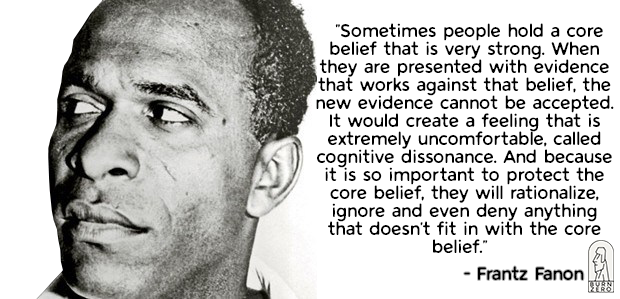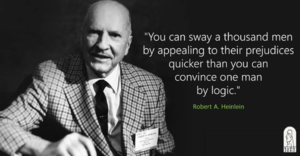Cognitive dissonance
In an ideal world, when people face strong evidence that challenges their beliefs, they would assess the new information and adjust their views accordingly. However, reality often unfolds differently.
This resistance to change can be attributed to cognitive dissonance, a discomfort experienced when confronted with conflicting information. Rather than reconsidering their long-held beliefs, many people, driven by this discomfort, dismiss the new evidence. This tendency to cling to one's initial beliefs, even in the face of contrary evidence, is known as belief perseverance, and no one is immune to it.
When individuals come across facts that challenge their beliefs, especially those tied to their personal and political identities, their ego can feel as if it is under a personal attack. This is especially true for deeply rooted beliefs. Being faced with such contradictory information can sometimes lead to a "backfire effect,"[1] where people double down on their original beliefs. This reaction is notably observed in debates over topics like climate change and childhood vaccinations, as shown in various studies.
This gets worse with age as neuroplasticity diminishes and changing our minds becomes increasingly difficult. Whilst cognitive dissonance in society is fine in regard to innocuous issues such as what is the best football team to support, when it comes to more pertinent issues such as what action to take in regards to the ecological crisis, dissonance on these ideas can be deadly. As Max Planck said "A new scientific truth does not triumph by convincing its opponents and making them see the light, but rather because its opponents eventually die, and a new generation grows up that is familiar with it” however, the question arises given the potential timeline of the ecological crisis do we have the time needed to overcome societies dissonance?
Politics
“if you are not a liberal at 20 you have no heart and if you are not a conservative at 30 you have no brain” has been long thought of as an aphorism in folk wisdom. The phrase suggests that people become more politically conservative as they grow older. However, several more recent empirical studies suggest political attitudes are stable across time[2].
A possible reason for this is that when people adopt political views in their younger years this forms part of their ego and cognitive dissonance works as a metaphorical shield protecting them from change. As they become less neuroplastic with age, this concretes their views beyond change. It is thought that whichever end of the political spectrum people identify as this can be altered in either direction by the use of psychedelics.
References
- ↑ Exposure to opposing views on social media can increase political polarization. Christopher A. Bail Edited by Peter S. Bearman, Columbia University, New York, NY, and approved August 9, 2018. Accessed on 31st August 2022 via https://doi.org/10.1073/pnas.1804840115
- ↑ Do People Really Become More Conservative as They Age? The Journal of Politics. Peterson, J. C., Smith, K. B., & Hibbing, J. R. (2019). doi:10.1086/706889

